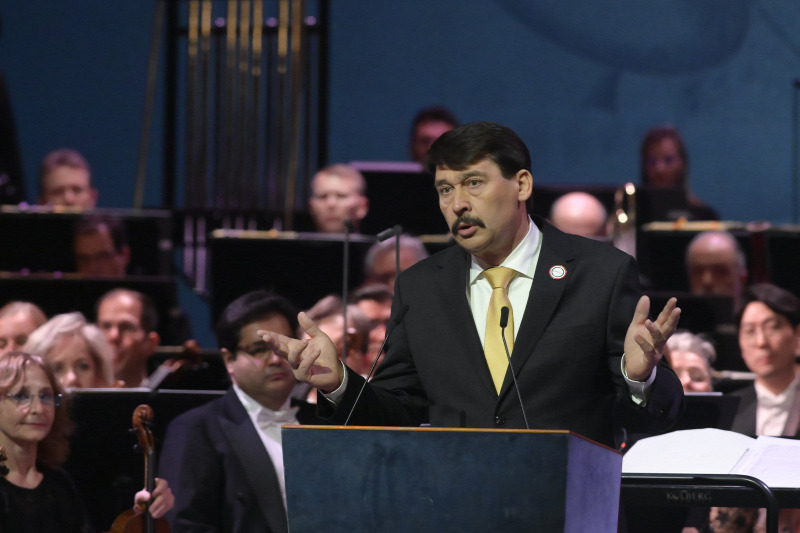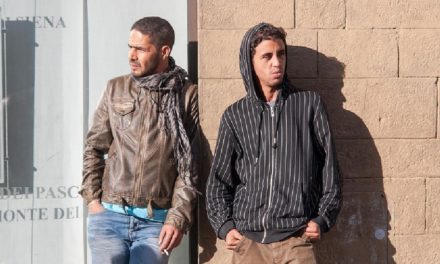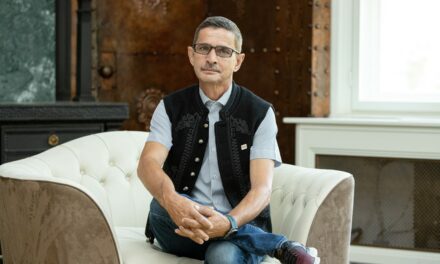The Hungarian State Opera's main building on Andrássy út, which underwent a comprehensive renovation, reopened with a festive gala program on Saturday evening in the presence of the current President János Áder and Katalin Novák, as well as Prime Minister Viktor Orbán.
During the World War II siege of Budapest, the stage and auditorium of the Opera House were empty, but its basement system was turned into a shelter, where the "cellar-dwelling artists" sometimes gave impromptu concerts, he recalled in his opening speech János Áder.
How much has this building seen and experienced: 138 years of wars and revolutions, conquerors and changing forms of government, occupation and regained freedom. So many directors who brought the heyday to opera, and certainly some unworthy ones as well. Old and new, conservative and progressive, the head of state reminded.
However, as he added, value always won in the end, sooner or later those who wanted to cultivate Opera the best and most demandingly won. Those who knew that the building József Ferenc's will, but more beautiful, those who knew that the performances presented here must compete with the best in Europe, he said.
Nowadays, when our cultural institutions are rising, renewing and beautifying, it is worth recalling what we believe in when we build or renovate a home worthy of the arts - emphasized János Áder in his opening speech.
One of Europe's most impressive collections of sculpture replicas finally found a worthy home within the walls of the renovated Csillaforőd in Komárom, the Eiffel Workshop, built on the site of a destroyed railway vehicle repair shop, housed the Opera's props, the "attractive and spectacular" House of Hungarian Music was built, the Pest and Buda Vigadó, the Romanian hall of the Museum of Fine Arts, the garden of the Hungarian National Museum or Ybl Miklós Castle Bazaar, libraries, theaters, museums, cultural centers and exhibition spaces have found a new home in the capital, throughout the country and in Hungarian-inhabited areas across the border, the head of state listed .
As he added, the innumerable cultural investments of recent years were necessary because all of this is uplifting, because it ennobles the soul, because it gives a person a scale; preserves value, offers an experience, teaches sophistication and respect for tradition.
Szilveszter Ókovács , the general director of the Opera House, suggested that when visitors enter the Miklós Ybl's masterpiece, do they ask the question: why is it so beautiful? According to the director general, the answer is simple, but has many elements: for example, because of the children's choir soloists, the students of the Opera House's ballet institute, the ballet dancers, the artists of the choir, the conductors and, last but not least, the singers. But the house is so beautiful because of the painters, industrial artists, and even the video designers and lighting designers, he noted. The Opera House is not simply a monument, but also a theater , he pointed out. Szilveszter Ókovács thanked Viktor Orbán for his "prolonged trust", as well as the financing government, the investor Városliget Zrt, and the designer Zoboki.
the architectural firm and the contractors, ministerial commissioner László Baán Tamás Kisvámosi , but also the loyalty of the spectators, as well as the endurance and patience of the opera house colleagues. The Opera House, renewed after comprehensive reconstruction, opens with a five-day festival. Before Saturday's opening gala, student premieres were already held on Friday and Saturday, then on Sunday to the original version of Ferenc Erkel's László Hunyadi MacMillan's Mayerling . From March 15th, those interested can also get to know the renovated Ybl palace on visitor tours.
Source: origo.hu
Featured image: MTI/Szilárd Koszticsák













